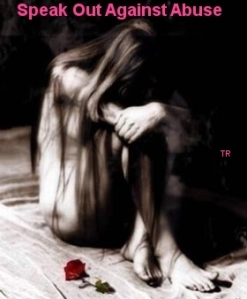“When Men Batter Women, New Insights into Ending Abusive Relationships” by professors Neil Jacobson and John Gottman, is based on an eight-year study of 200 married couples, 60 of them with a history of physical abuse.
“Emotional abuse is harder to live with than being beaten,” Jacobson said. “It means something different to women when it occurs with physical abuse. It is a reminder and takes on some of the characteristics of the beatings experienced by battered women.
“Emotional abuse is more oppressive, particularly when it is frequent, and among the violent couples we studied it can be present every day, every waking hour, 24 hours a day. What men are doing with emotional abuse is almost like mind control.”
Ann Imburgio, a licensed mental health counselor at a women’s shelter, says. “Emotional abuse is worse [than physical]. Women can get over physical abuse, although it is horrendous to go through. Emotional abuse lasts for years afterward. Women are still dealing with the effects of emotional abuse long afterward.”
Repetition gives emotional abuse its power, Imburgio said.
“It’s done over an extended period of time, and said in such a commanding way that the victim starts believing it. The woman may have entered into the relationship with healthy self-esteem and be feeling good about herself, but after months and years of listening to the person whom she’s cared for, saying she’s stupid or lazy or a whore, she starts believing it and doubting herself,” Imburgio explained.
DeJarnette lists a whole range of behavior that falls under the category of emotional abuse: putting a wife down, calling her names, making her think she is crazy, playing mind games, humiliating her, making her feel guilty and isolating her from family and friends.
“When [the abuser] interrogates her on who she sees, what she reads, who she talks to and where she goes, the whole thing is an attempt to limit outside involvement,” DeJarnette said. Jealousy is a primary benchmark for this abusive situation.
“Another type of emotional abuse is making a person afraid by using looks, actions, gestures, smashing things, destroying property, abusing pets and displaying weapons,” DeJarnette added. “All efforts to display intimidation are a form of emotional abuse, an effort to control another person.
“Another way is by using coercion or threats,” she explained. “We have come a long way over the years, but there is still something called male privilege in our culture.”
A danger sign for domestic violence can be an insistence on a “traditional” patriarchal role that becomes overbearing, DeJarnette explained.
“In a majority of households, women are working now, but the male is still the primary breadwinner. He can use economic leverage as a means of controlling and abusing her emotionally,” she said. When the quest for control gets out of hand, the woman is vulnerable to abuse.
Emotional abuse is a learned behavior, usually seen by the abuser from childhood either directly or as he watched his own parents struggle through an abusive relationship.
“Most men who are emotionally or physically or sexually abusive deny, minimize and blame,” DeJarnette said. “They make the female responsible for their behavior, so they feel justified in their behavior based on what she does.”
Although Imburgio said men can be the target of emotional abuse, traditional gender roles and a male-oriented society make women the target far more often.
According to DeJarnette, in 95 percent of national domestic violence cases, “the man is the one who is arrested and is the primary aggressor.”
The National Institute of Mental Health estimates that 2 to 4 million women are beaten every year by their husbands.
The fact that abusers rarely take responsibility for their actions makes any hope for a cure or change unlikely, experts warn. The best bet for women being emotionally abused is to get out before the relationship escalates into violence.
“Battered women do get out, and they get out at a high rate,” explained author Jacobson, citing increasing divorce statistics, including rates among his study group. For those who stay together, the prognosis is not good.
“Psychotherapy doesn’t work with batterers,” said Jacobson.













